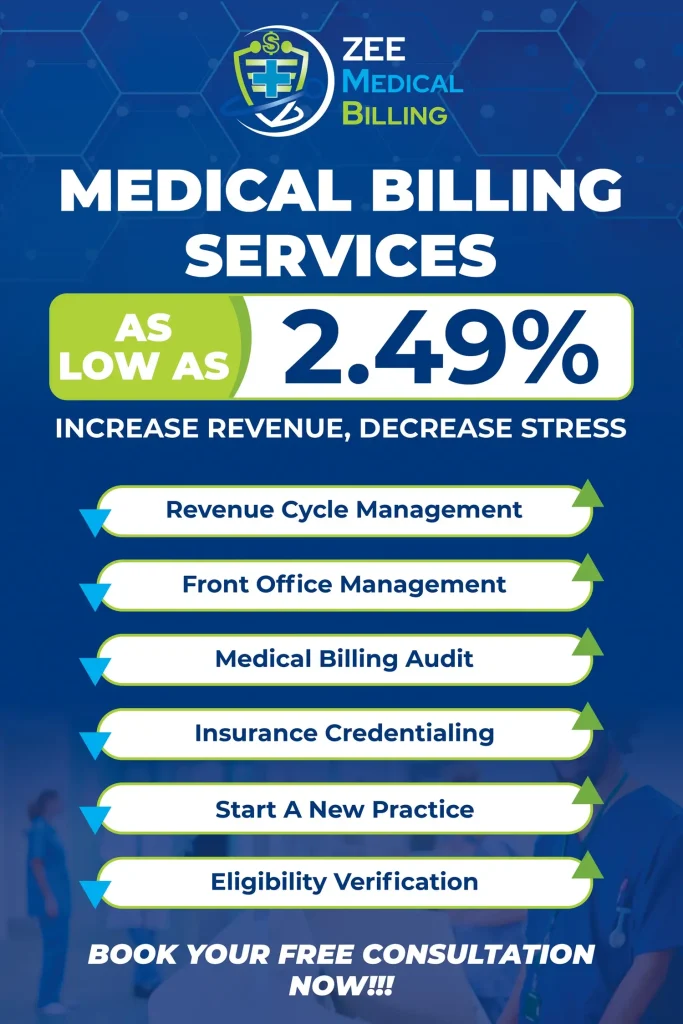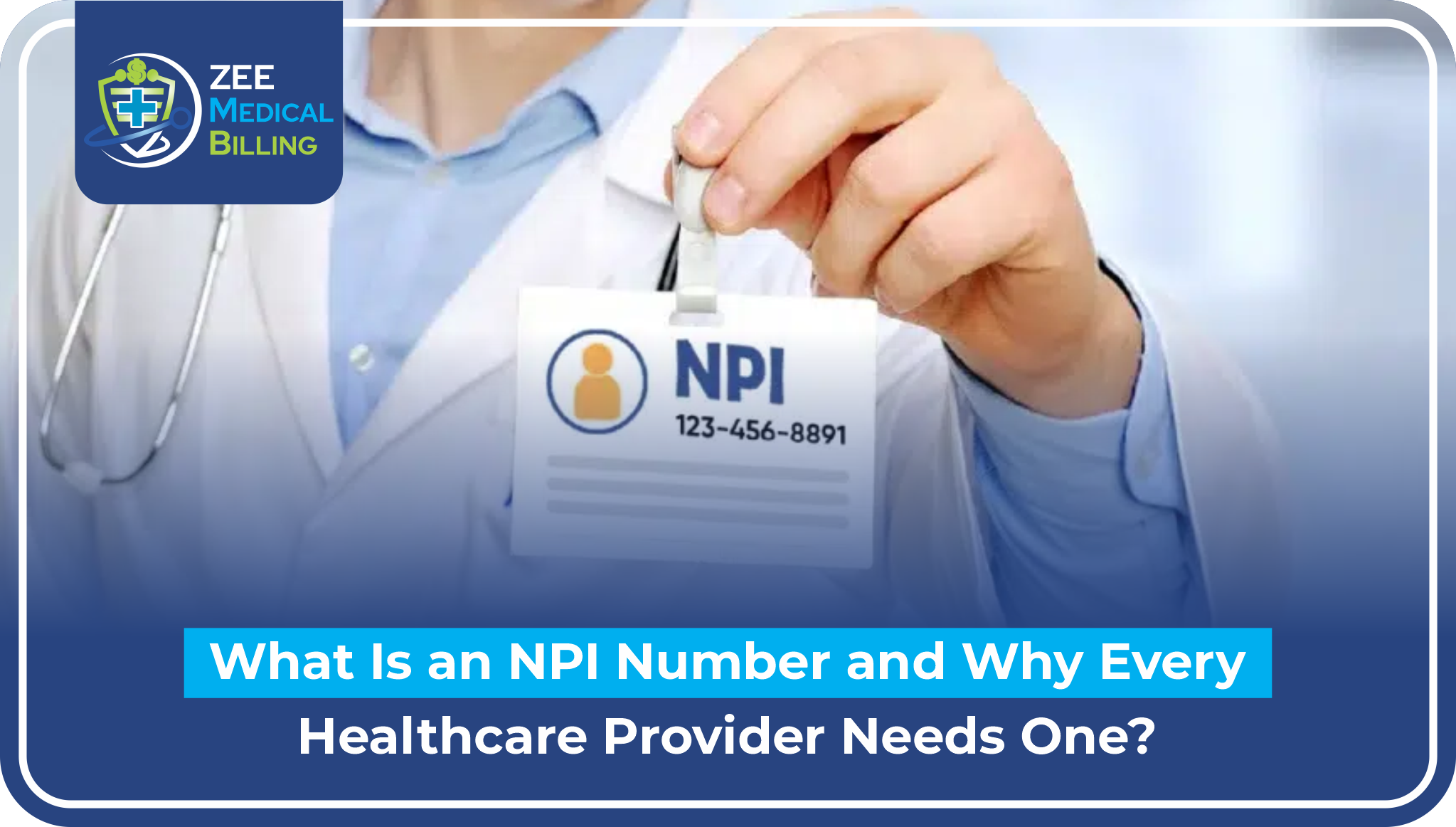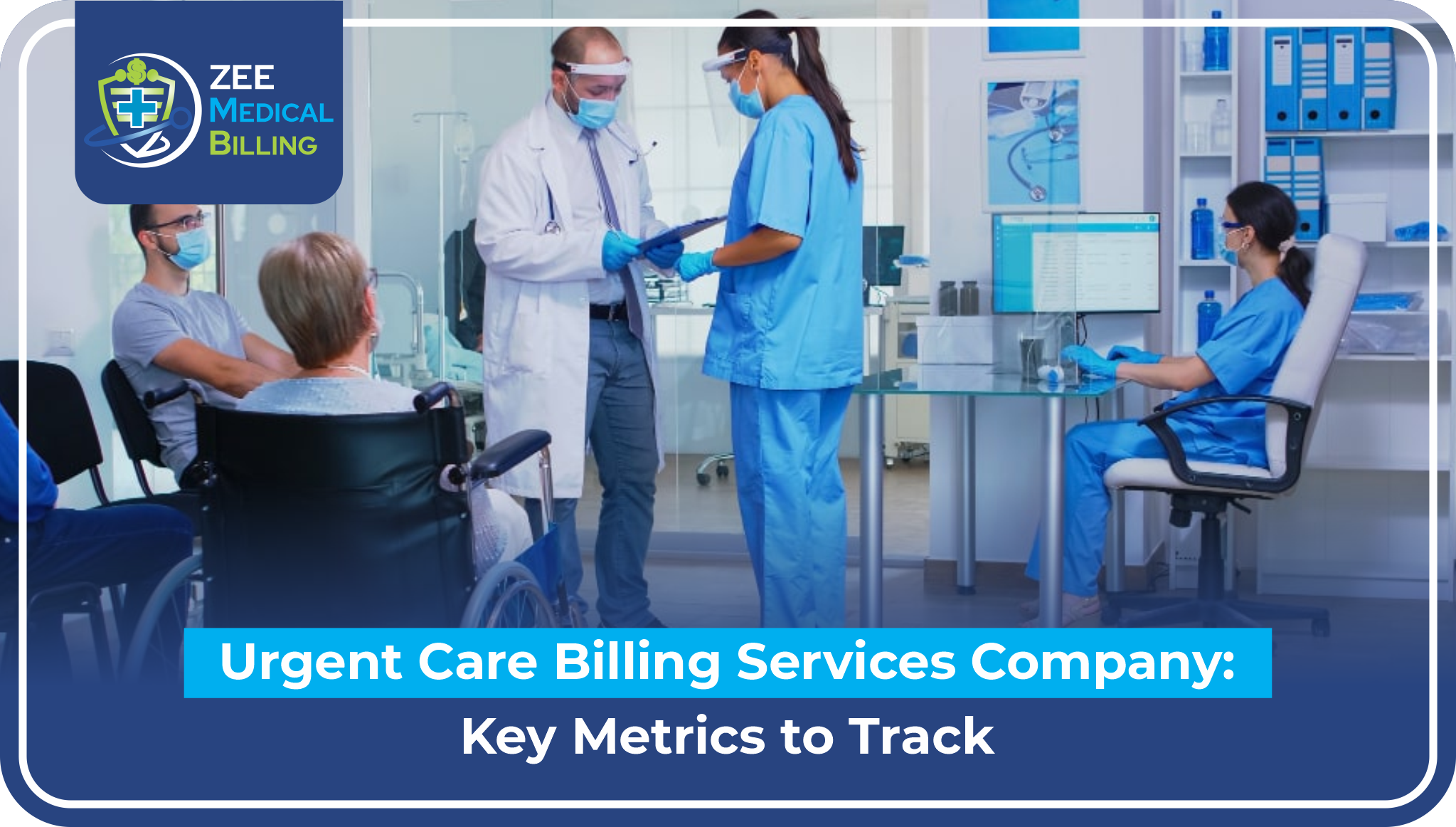Running a successful mental health practice involves more than just providing excellent patient care. Behind every thriving practice lies a complex web of administrative tasks, with mental health billing services standing as one of the most critical yet challenging aspects. Have you ever wondered why some mental health providers struggle financially while others flourish? The answer often lies in their approach to billing and revenue cycle management.
Mental health billing services have emerged as a game-changing solution for providers looking to streamline their operations, reduce claim denials, and maximize their revenue potential. But what exactly makes these services so essential, and how can they transform your practice’s financial health?
Understanding Mental Health Billing Services
Mental health billing services represent a specialized branch of medical billing that focuses exclusively on the unique requirements of psychological and psychiatric care. Unlike general medical billing, mental health billing involves intricate coding systems, specific insurance regulations, and complex reimbursement structures that require expert knowledge and attention to detail.
These services handle everything from initial insurance verification to final payment posting, ensuring that mental health providers can focus on what they do best – caring for their patients. Think of it as having a dedicated financial team working behind the scenes, translating your clinical expertise into proper billing language that insurance companies understand and process efficiently.
The complexity of mental health billing cannot be overstated. With constantly changing regulations, evolving insurance policies, and specific coding requirements for different types of therapy and psychiatric services, it’s no wonder that many providers find themselves overwhelmed by the administrative burden.
Why Mental Health Providers Need Specialized Billing
Mental health services operate under a different set of rules compared to traditional medical practices. The stigma surrounding mental health has historically led to more restrictive insurance coverage, requiring providers to navigate a maze of pre-authorization requirements, session limits, and specific documentation standards.
Consider this: while a primary care physician might see a patient for a 15-minute check-up, a therapist typically spends 45-50 minutes in session. The billing codes, documentation requirements, and reimbursement rates all differ significantly. This specialization demands billing expertise that goes beyond general medical coding knowledge.
Furthermore, mental health providers often deal with various service types – individual therapy, group sessions, family counseling, psychological testing, and medication management – each with its own billing complexities. Without specialized knowledge, these nuances can lead to coding errors, claim denials, and significant revenue loss.
Common Challenges in Mental Health Billing
The path to successful mental health billing is fraught with obstacles that can derail even the most well-intentioned practices. One of the most prevalent issues is the high rate of claim denials, which can reach up to 20% in some mental health practices – significantly higher than other medical specialties.
Insurance verification presents another major hurdle. Mental health benefits often involve complex tier systems, where certain types of therapy require different levels of authorization. A patient might have coverage for individual therapy but not for group sessions, or they might need prior authorization for extended treatment plans.
Documentation requirements add another layer of complexity. Insurance companies scrutinize mental health claims more heavily, requiring detailed treatment plans, progress notes, and justification for continued care. Missing or inadequate documentation can result in immediate claim rejection, forcing providers to resubmit claims and delay payment.
The ever-changing landscape of mental health parity laws also creates challenges. While these laws aim to ensure equal coverage for mental health services, they’ve also introduced new compliance requirements that practices must navigate carefully to avoid violations and penalties.
Benefits of Professional Mental Health Billing Services
Partnering with professional mental health billing services offers numerous advantages that extend far beyond simple claim submission. These services bring specialized expertise that can dramatically improve your practice’s financial performance while reducing administrative stress.
First and foremost, professional billing services significantly improve first-pass claim approval rates. Their expertise in mental health coding and insurance requirements means fewer errors, fewer denials, and faster payments. This improvement in cash flow can be transformative for practices that have struggled with delayed or denied reimbursements.
Time savings represent another crucial benefit. Instead of spending hours on billing tasks, providers can dedicate more time to patient care, practice growth, or personal well-being. This shift not only improves work-life balance but can also increase overall practice revenue by allowing providers to see more patients or expand services.
Professional billing services also provide valuable reporting and analytics that help practices make informed business decisions. Detailed reports on claim patterns, denial reasons, and payer performance can reveal opportunities for improvement and growth that might otherwise go unnoticed.
Key Features to Look for in Mental Health Billing Services
When evaluating mental health billing services, certain features should be non-negotiable. Real-time eligibility verification stands as a cornerstone feature, allowing practices to verify patient benefits before services are rendered, preventing surprises and ensuring appropriate authorization when needed.
Comprehensive reporting capabilities are equally important. Your billing service should provide detailed analytics on key performance indicators such as days in accounts receivable, denial rates, and collection percentages. These insights enable data-driven decision-making and help identify areas for improvement.
Integration capabilities with your existing practice management software can streamline operations and reduce data entry errors. Look for services that can seamlessly connect with popular mental health practice management systems, ensuring smooth data flow and minimal disruption to existing workflows.
Dedicated support and communication channels are also crucial. Mental health billing often requires quick responses to insurance inquiries or authorization requests. Your billing service should provide accessible support staff who understand the urgency of these situations and can respond promptly to protect your revenue stream.
How Mental Health Billing Services Reduce Claim Denials
Claim denials represent one of the biggest threats to mental health practice profitability, but professional billing services employ multiple strategies to minimize these costly setbacks. Pre-claim scrubbing technology automatically checks claims for common errors before submission, catching mistakes that might otherwise result in denials.
Expert knowledge of mental health coding ensures that the most appropriate and specific codes are used for each service. This precision not only reduces denial risk but can also maximize reimbursement by ensuring that the full scope of services provided is properly captured and billed.
Proactive insurance follow-up is another key strategy. Rather than waiting for denials to occur, professional billing services maintain ongoing communication with insurance companies, addressing potential issues before they become problems. This proactive approach can prevent denials and accelerate payment processing.
When denials do occur, professional billing services have established appeal processes and relationships with insurance companies that can expedite resolution. Their experience with common denial reasons and successful appeal strategies can turn potential revenue losses into recovered payments.
Maximizing Profit with Expert Billing Solutions
Professional mental health billing services don’t just prevent revenue loss – they actively work to maximize your practice’s profit potential. Through detailed analysis of your billing patterns and payer mix, these services can identify opportunities for revenue optimization that might not be apparent to practice owners.
Fee schedule optimization represents one significant opportunity. Professional billing services maintain current knowledge of insurance reimbursement rates and can help ensure that your fee schedules are optimized for maximum reimbursement while remaining competitive in your market.
Identification of unbilled services is another profit-maximizing strategy. Many practices unknowingly leave money on the table by failing to bill for all services provided. Professional billing services conduct thorough reviews to ensure that every billable service is captured and properly coded.
Revenue cycle optimization through improved processes and technology can also significantly impact profitability. By streamlining workflows, reducing processing time, and improving collection rates, professional billing services can increase overall practice efficiency and profitability.
Types of Mental Health Services That Require Specialized Billing
The diversity of mental health services creates unique billing challenges that require specialized knowledge and expertise. Individual psychotherapy sessions, while seemingly straightforward, involve specific time-based coding requirements and documentation standards that vary by insurance company and service duration.
Group therapy sessions present additional complexity, as billing codes and reimbursement rates differ significantly from individual sessions. Many insurance companies have specific requirements for group size, session duration, and therapist qualifications that must be met for proper reimbursement.
Psychological testing and assessment services involve some of the most complex billing scenarios in mental health. These services often require multiple codes for different components of the testing process, specific documentation requirements, and careful attention to coverage limitations and authorization requirements.
Family and couples therapy sessions have their own unique coding requirements and coverage considerations. Some insurance plans provide limited coverage for these services, while others may require specific qualifying conditions or treatment approaches for reimbursement.
Insurance Navigation for Mental Health Claims
Navigating insurance requirements for mental health claims requires specialized knowledge that goes well beyond basic medical billing expertise. Mental health parity laws have created new requirements for insurance coverage, but these laws are complex and implementation varies significantly between different insurance companies and plan types.
Prior authorization requirements for mental health services are often more stringent than those for other medical services. Understanding which services require authorization, how to obtain it efficiently, and how to maintain it throughout treatment is crucial for avoiding claim denials and treatment interruptions.
Network participation considerations also play a significant role in mental health billing success. In-network versus out-of-network billing involves different processes, reimbursement rates, and patient responsibility calculations that must be handled carefully to avoid billing errors and patient satisfaction issues.
Technology Integration in Mental Health Billing
Modern mental health billing services leverage advanced technology to improve accuracy, efficiency, and transparency in the billing process. Electronic health records integration ensures seamless data flow from clinical documentation to billing systems, reducing manual data entry and associated error risks.
Automated eligibility verification systems check patient benefits in real-time, providing immediate feedback on coverage limitations, copayment amounts, and authorization requirements. This technology enables practices to have informed financial conversations with patients before services are rendered.
Advanced analytics and reporting platforms provide detailed insights into practice performance, identifying trends and opportunities that can inform strategic decision-making. These tools can reveal patterns in denial reasons, payer performance, and revenue cycles that might otherwise go unnoticed.
Compliance and Regulatory Requirements
Mental health billing operates within a complex regulatory environment that requires constant attention and expertise to navigate successfully. HIPAA compliance represents just one aspect of these requirements, with specific considerations for mental health records that go beyond general medical privacy requirements.
Mental health parity laws continue to evolve, creating new compliance obligations for both providers and billing services. Understanding these requirements and ensuring ongoing compliance is essential for avoiding penalties and maintaining proper reimbursement.
State-specific licensing and billing requirements add another layer of complexity, particularly for practices that operate across multiple states or provide telehealth services. Professional billing services maintain current knowledge of these varying requirements and ensure compliance across all jurisdictions.
Cost-Effectiveness of Outsourced Billing
The financial benefits of outsourcing mental health billing often far exceed the associated costs, making it a smart investment for practices of all sizes. When considering the total cost of in-house billing – including staff salaries, benefits, training, software, and infrastructure – outsourcing frequently represents significant savings.
Beyond direct cost savings, outsourced billing services provide access to expertise and technology that would be prohibitively expensive for individual practices to develop internally. This access levels the playing field, allowing smaller practices to compete effectively with larger organizations.
Risk reduction represents another important cost consideration. Professional billing services carry errors and omissions insurance, assume liability for billing errors, and provide compliance expertise that reduces the risk of costly penalties or audit findings.
HIPAA Compliance in Mental Health Billing
HIPAA compliance in mental health billing requires special attention due to the sensitive nature of psychological and psychiatric information. Mental health records often contain more detailed personal information than general medical records, making proper handling and protection even more critical.
Business associate agreements between practices and billing services must specifically address mental health information handling, including additional safeguards and restrictions that may not apply to other types of medical billing. These agreements should clearly define responsibilities and provide adequate protection for both parties.
Staff training and ongoing education about HIPAA requirements specific to mental health information are essential components of a compliant billing operation. This training must go beyond general HIPAA awareness to address the unique considerations involved in mental health billing and records management.
Real-Time Claim Processing Benefits
Real-time claim processing capabilities have revolutionized mental health billing by providing immediate feedback on claim status and potential issues. This technology enables billing services to identify and address problems before they result in denials, significantly improving first-pass approval rates.
Immediate eligibility verification helps prevent coverage surprises that can disrupt treatment and create billing complications. Patients and providers can have informed discussions about coverage limitations and financial responsibility before treatment begins, improving both patient satisfaction and collection rates.
Real-time reporting and dashboard access provide practices with up-to-the-minute information about their billing performance, enabling proactive management and quick response to emerging issues. This transparency builds trust and enables better financial planning and decision-making.
Choosing the Right Billing Partner for Your Practice
Selecting the right mental health billing service partner requires careful consideration of multiple factors beyond simple cost comparisons. Experience with mental health billing specifically should be a primary consideration, as general medical billing expertise may not translate effectively to the unique requirements of psychological and psychiatric services.
Technology capabilities and integration options should align with your practice’s current systems and future growth plans. The billing service should be able to adapt to your workflow rather than forcing you to change established processes that work well for your practice.
Communication style and availability are crucial factors that can significantly impact the success of the partnership. Look for billing services that provide regular updates, responsive support, and proactive communication about issues or opportunities that arise.
Conclusion
Mental health billing services represent a strategic investment that can transform the financial performance of your practice while allowing you to focus on providing excellent patient care. The specialized expertise, advanced technology, and proven processes that professional billing services bring to the table can significantly reduce claim denials, accelerate payment processing, and maximize your revenue potential.
The complexity of mental health billing continues to increase as regulations evolve and insurance requirements become more stringent. Partnering with a specialized billing service ensures that your practice stays ahead of these changes while maintaining compliance and optimizing financial performance.
By choosing the right mental health billing service partner, you’re not just outsourcing administrative tasks – you’re gaining a strategic ally in building a more profitable, efficient, and sustainable practice. The time and energy you save can be reinvested in patient care, practice growth, and personal well-being, creating a positive cycle that benefits everyone involved.
Frequently Asked Questions
1. How much can mental health billing services typically reduce claim denials?
Professional mental health billing services typically reduce claim denial rates by 60-80% compared to in-house billing operations. This dramatic improvement results from specialized expertise, pre-claim scrubbing technology, and proactive insurance communication that catches and prevents common errors before claims are submitted.
2. What is the average cost savings when outsourcing mental health billing?
Most mental health practices save 15-30% on their total billing costs when outsourcing to professional services. These savings come from reduced staffing needs, eliminated software and infrastructure costs, improved collection rates, and faster payment processing that improves cash flow.
3. How long does it typically take to see results after switching to professional billing services?
Most practices begin seeing improvements in claim approval rates and cash flow within 30-60 days of switching to professional mental health billing services. Full optimization typically occurs within 90-120 days as processes are refined and payer relationships are established.
4. Do mental health billing services handle prior authorizations and insurance verification?
Yes, comprehensive mental health billing services typically include prior authorization management and real-time insurance verification as standard features. These services understand the unique authorization requirements for mental health services and maintain processes to obtain and maintain necessary approvals efficiently.
5. Can mental health billing services integrate with existing practice management software?
Most professional mental health billing services offer integration capabilities with popular practice management systems used by mental health providers. This integration ensures seamless data flow, reduces manual data entry, and maintains workflow efficiency while improving billing accuracy and speed.


























